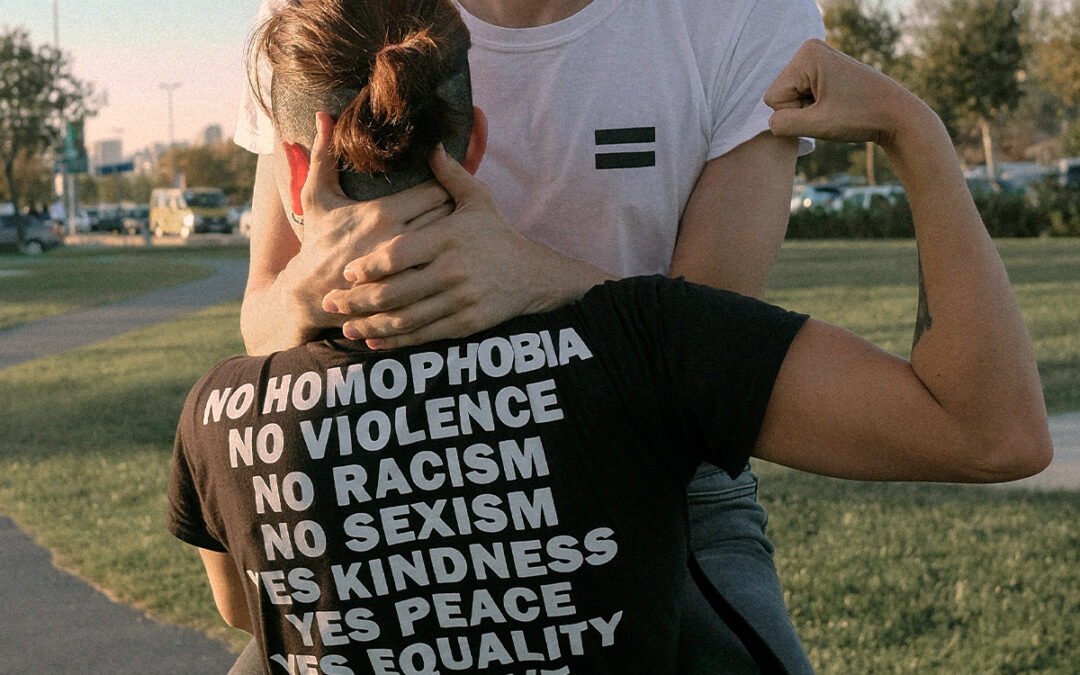“Did you know the heart has a dungeon? Bring light! Bring light!”
— Mary Oliver (Red Bird: Poems 2009)
Are you looking for a therapist while LGBTQIA+ or BIPOC, but fear you won’t find someone who really gets you? Social justice counseling may be the answer for you. Learn what to ask a therapist to make sure you find the right fit.
Hi, y’all. You may notice a different tone from me in this post. First and foremost because social justice counseling is a topic near and dear to my heart as anything can be. Secondly, it feels important to contain (okay… manage) my usual glibness in light of recent events. So, I’ll try to do what we therapists often help clients do: hold on to two seemingly irreconcilable truths. Or, as the late Mary Oliver does in her poem above, acknowledging the gloom that can accompany human experience while continuing to search for illumination.
Social Justice Minded Counseling Training
During my clinical training, I was fortunate enough to receive an internship spot with Indiana University’s LGBTQ+ Culture Center. Training that is specifically oriented toward the intersection of identity, politics, and mental health is rare back home. Rarer still to have its center on queer experiences.
When you’re working with BIPOC or LGBTQ+ folks, the idea that systemic oppression impacts mental health is a no-brainer. I come from a state with few (or none, depending on your county) legal protections for queer people. There are entire zip codes, should you be born into, which will have dramatic, sometimes inescapable, socioeconomic consequences for your life. I see this in Baltimore too: it was apparent even before I learned of the city’s history of redlining.
During my internship, I routinely saw folks whose depression and anxiety were directly linked to housing and employment discrimination. When a person’s gender expression or name on their housing application didn’t match up to a potential landlord’s liking… There was little recourse. I often struggled with formally diagnosing folks in these situations.
Why is Social Justice a Counseling Concern?
Is anxiety pathological in the context of the very real danger of being verbally or physically assaulted? For being gay or trans? For being BIPOC? Are exhaustion and other depressive symptoms truly abnormal psychology in a political climate where 51% of the US population has fewer rights and bodily autonomy than they did three weeks ago?
No. I’d say that they are difficult, but very much normal, human, responses to injustice.
For myself, and if I may be so bold as to speak for my other colleagues at New Connections, social justice, and mental health are inseparable. It’s crucial to have a clinician who understands that your challenges are rooted in larger systems. Any clinical approach has the potential to incorporate this understanding. But if it is absent, it can leave the client feeling misunderstood, unhelped, or even feeling like therapy has become an extension of oppression.
In that spirit, I want to offer a crucial piece of advice for anyone looking for counseling that operates from a social justice lens:
When Choosing a Clinic or Counselor: Interview Your Therapist and Research the Clinic
Many clients are not aware that they are empowered to ask their potential therapist questions about their approach and “clinical worldview”. Many therapists give a free 15-minute consultation before the intake. Be sure to come prepared with your questions. If you are wondering about a clinician’s understanding of identity, culture, and oppression ask:
- What’s your view on how oppression (family, culture, politics, injustice…) affects mental health?
- What’s your approach to working with clients whose challenges are rooted in discrimination?
- In politics? In identity?
I’d be cautious of any clinician who can’t answer this question.
As mentioned in a previous blog post on finding a therapist as an LGBTQIA+ person, a shared identity with a clinician can be extraordinarily helpful for the therapeutic relationship. Thus, it is good practice for a potential client to ask questions about a therapist’s clinical worldview and practice.
It’s also a good idea to thoroughly explore an agency’s website and other resources. Is social justice-minded counseling named? While I don’t expect *any* therapy practice to specialize in working with all aspects of identity, or to be social justice organizations in and of themselves (wouldn’t that be nice, though?) – absence can communicate quite a bit.
Finding a Social Justice-Oriented Therapist in Baltimore, MD
At New Connections, we’re making strides to give back to communities, either through our own individual advocacy or through New Connections initiatives. In regards to the latter, we’re aiming to begin offering a number of free assessments each month for trans, nonbinary, and gender non-conforming people who are navigating their way through medical systems for gender affirmation care.
Additionally, our internal training model incorporates social justice and looks to increase our understanding of the challenges faced by different marginalized communities, BIPOC communities, and most recently challenges unique to LGBTQ+ relationships.
Have you been thinking about starting therapy? Are you looking for a culturally responsive and social justice-oriented therapist? Reach out with any questions, doubts, or concerns you’ve been dwelling on. You are not alone. We are ready to help!






